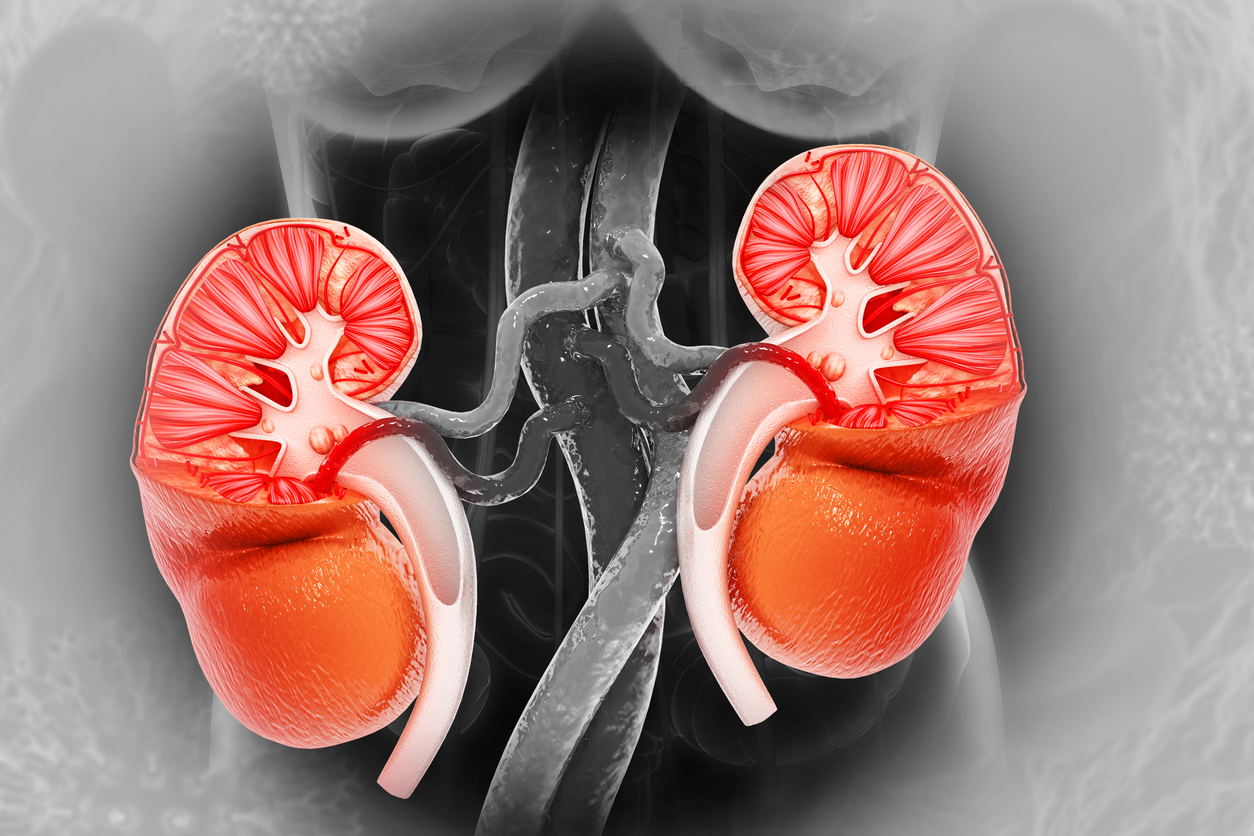2024-10-31
Microvascular Inflammation: A Silent Threat in Kidney Transplantation ?
Endocrinology and Metabolism
Microvascular inflammation is
emerging as a significant challenge in kidney transplantation. This condition
significantly affects graft survival and requires a tailored approach to
patient care. Commonly linked to alloimmune responses, this condition can occur
without donor-specific antibodies, complicating both diagnosis and treatment. Given
the implications for patients with end-stage renal disease, understanding the
various phenotypes of microvascular inflammation and their impact on kidney
transplants is essential.
This study analyzed over 16,000 kidney transplant biopsies from 6,798 transplant recipients between 2004 and 2023, involving more than 30 transplant centers worldwide. The biopsies were classified into two newly defined categories:
The primary assessment criteria included graft loss risk, the progression of transplant glomerulopathy, and the presence of antibody-mediated rejection.
The findings indicate that microvascular inflammation affects 4.8% of kidney transplant biopsies, presenting with highly distinct phenotypes: 3.1% of cases without donor-specific antibodies and 1.7% with probable antibody-mediated rejection.
Additionally, patients with microvascular inflammation—either without evidence of antibody-mediated rejection or with probable antibody-mediated rejection— were found to have a 2.1 and 2.7 times higher risk, respectively, of graft loss compared to patients without rejection. These patients also demonstrate an elevated risk of developing transplant glomerulopathy.
This study underscores the pivotal role of microvascular inflammation in the survival of kidney transplants, highlighting its impact on graft loss and glomerulopathy risk, even in the absence of antibody-mediated rejection. A deeper understanding of these mechanisms is now crucial for optimizing post-transplant care and fostering new therapeutic strategies, which may also be beneficial for other types of organ transplants. These advances also open promising avenues, such as the development of treatments targeting innate immunity and T cells. Additionally, incorporating new phenotypic clissifications allows for refined diagnostics and precise treatment adjustments.
How Does Microvascular Inflammation Impact Kidney Transplants?
This study analyzed over 16,000 kidney transplant biopsies from 6,798 transplant recipients between 2004 and 2023, involving more than 30 transplant centers worldwide. The biopsies were classified into two newly defined categories:
- Microvascular inflammation without evidence of antibody-mediated rejection;
- Probable antibody-mediated rejection.
The primary assessment criteria included graft loss risk, the progression of transplant glomerulopathy, and the presence of antibody-mediated rejection.
The findings indicate that microvascular inflammation affects 4.8% of kidney transplant biopsies, presenting with highly distinct phenotypes: 3.1% of cases without donor-specific antibodies and 1.7% with probable antibody-mediated rejection.
Additionally, patients with microvascular inflammation—either without evidence of antibody-mediated rejection or with probable antibody-mediated rejection— were found to have a 2.1 and 2.7 times higher risk, respectively, of graft loss compared to patients without rejection. These patients also demonstrate an elevated risk of developing transplant glomerulopathy.
Microvascular Inflammation in Kidney Transplants: A Key Factor in Allograft Survival and Glomerulopathy Progression
This study underscores the pivotal role of microvascular inflammation in the survival of kidney transplants, highlighting its impact on graft loss and glomerulopathy risk, even in the absence of antibody-mediated rejection. A deeper understanding of these mechanisms is now crucial for optimizing post-transplant care and fostering new therapeutic strategies, which may also be beneficial for other types of organ transplants. These advances also open promising avenues, such as the development of treatments targeting innate immunity and T cells. Additionally, incorporating new phenotypic clissifications allows for refined diagnostics and precise treatment adjustments.

Last press reviews
Cinnamon: more than just a spice?

By Ana Espino | Published on December 12, 2025 | 3 min read<br>...
Pneumothorax: surgery or patience?

By Ana Espino | Published on December 11, 2025 | 3 min read<br>...
Cabotegravir and pregnancy: a winning combination or a risky gamble?

By Ana Espino | Published on December 10, 2025 | 3 min read<br>...